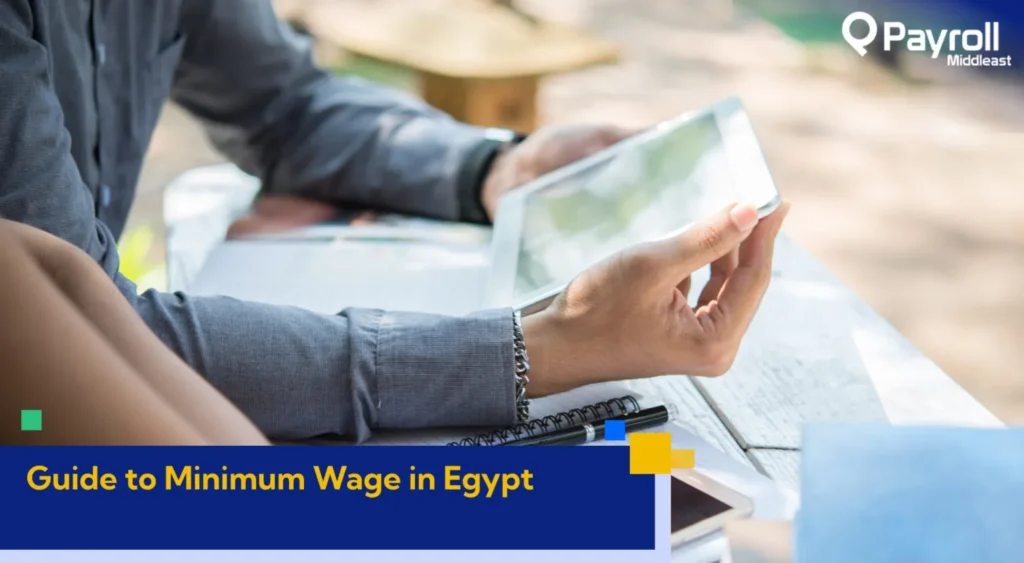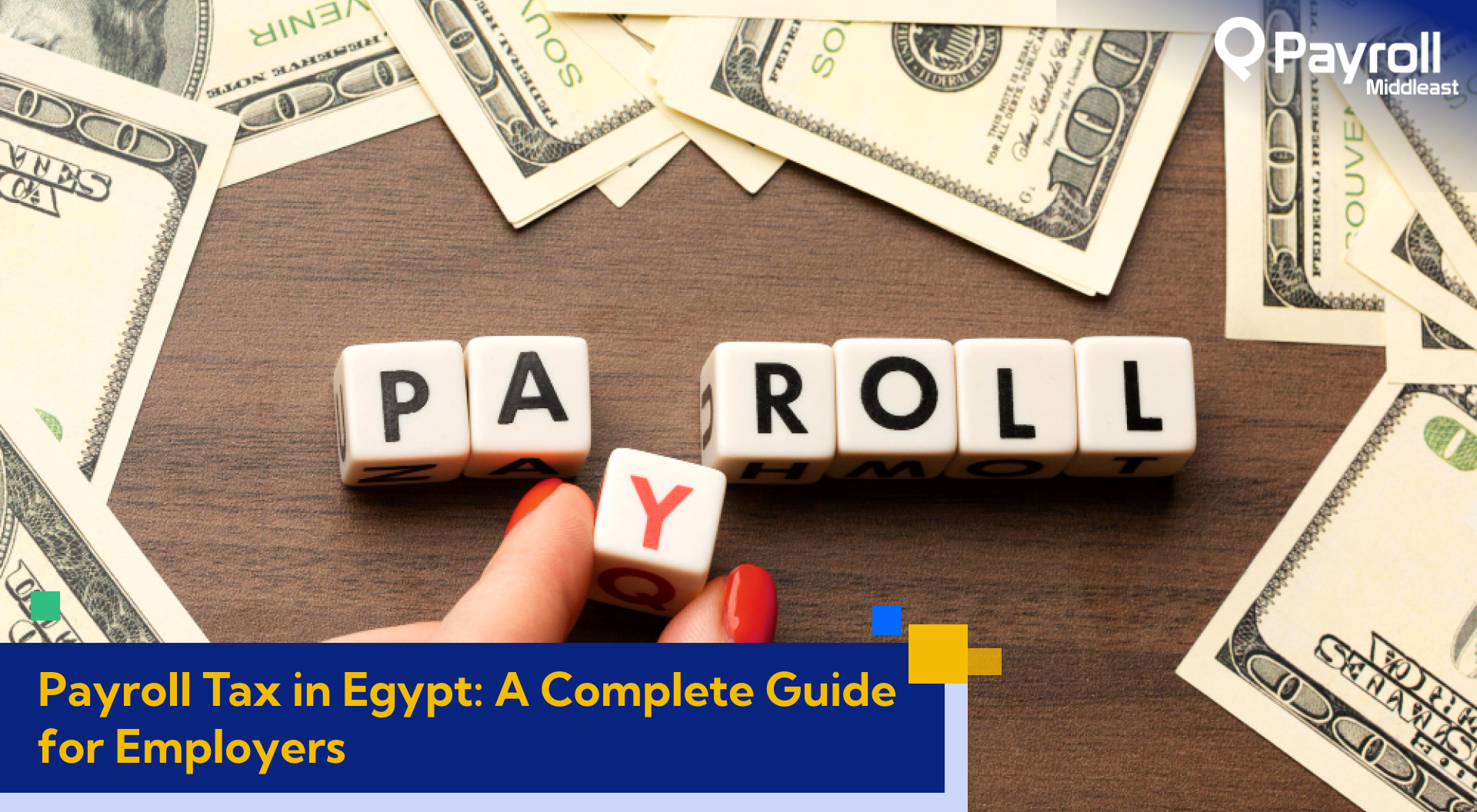When the cost of living is higher and the minimum wage is either too low or not even set to be a particular number, it only invites resentment among workers, productivity taking a hit, businesses facing high turnover rates, and economies of countries struggling. When the employees can’t afford the basic necessities, their health is at stake and social stability of that country is almost in shambles. And that’s a divide that can’t be bridged without some standard systems in place.
Employees and employers in Egypt also echo this sentiment as they pay close attention to any updates being announced to the minimum pay thresholds. That’s why in this blog post, we will discuss what the minimum wage in Egypt is in 2025 and why it matters this much for employees and companies.
Brief overview of minimum wage and its importance
The minimum wage sets the legal baseline that employers must follow when paying employees. It reflects the government’s attempt to balance workers’ need for a decent living with employers’ ability to stay competitive. For workers, it’s about their dignity and financial stability. For businesses, it’s a benchmark that shapes their hiring costs and payroll planning.
Why the topic matters in the context of Egypt
Egypt’s economy is a mix of formal businesses and a large informal sector. Many workers rely heavily on the minimum wage for their survival. Whereas. employers calculate how these changes will affect their business operations. As wages adjust in 2025, both sides are watching closely, since updates in law affect payroll budgets and worker expectations. We’ll explore the specifics of those adjustments shortly.
What is Minimum Wage?
Minimum wage is the lowest legal amount an employer can pay a worker. It exists to prevent exploitation and to provide a safety net. This is a way to make sure the employees are not being underpaid.
Types of Minimum Wage
In Egypt, the conversation usually revolves around monthly pay. But daily and hourly equivalents matter too! For example, someone working in retail or hospitality might calculate their earnings per hour. This makes it all the more important to consider minimum wage in Egypt per hour alongside monthly figures.
Global perspective vs. local context
Globally, minimum wage policies differ widely. Some countries adjust wages automatically based on inflation, while others rely on negotiations between workers and employers. Egypt’s model is more government-driven, with periodic adjustments. Compared to international benchmarks, Egypt’s minimum salary remains modest, reflecting local economic realities along with the need to remain competitive in regional markets.
Current Minimum Wage in Egypt
As of 2025, the government has announced new minimums that apply to both public and private sectors. While exact amounts differ depending on your job classification, the clear direction is upward, with wages raised to reflect inflation and rising living costs. We will go into more details about the broader effects of these increases in the upcoming sections.
Comparison by sector & region
Minimum wage Egypt looks different across industries and sectors. Some sectors have slightly higher rates, particularly industries where labor shortages exist. Regional differences also come into play, with urban centers like Cairo offering slightly higher pay compared to rural areas. These gaps affect how workers perceive fairness and mobility within the job market.
Government-mandated changes or updates
The minimum wage in Egypt 2025 update reflects continued government intervention to improve worker livelihoods. The intention behind these adjustments is to help families keep pace with cost of living increasing. Employers, however, may find themselves recalculating payroll budgets and seeking payroll outsourcing solutions to stay compliant without overstretching resources.
Who Sets the Minimum Wage in Egypt?
In this section, we answer some of the important questions about who determines the minimum wage, the role government and relevant ministries play, and the extent to which labour unions and business associations are actually involved.
Role of government & ministries
Egyptian government sets and enforces wage rules. Updates usually follow economic studies and recommendations that advise balancing worker welfare with economic growth.
Involvement of labor unions & business associations
Labor unions push for higher pay to protect workers. Business associations, on the other hand, argue for manageable increases to avoid putting strain on employers. Taking concerns raised from both sides shape what gets announced as the minimum wage threshold.
Legal framework & Enforcement
Egypt’s labor laws back up the minimum wage requirements. But enforcement has yet to be steady and uniform across all sectors and parts of the countries. Employers are legally required to comply, though informal arrangements still exist. Later in this blog post, we will be covering how this impacts workers, particularly those in sectors less likely to benefit from official enforcement.
Impact of Minimum Wage on Workers
We will be discussing how minimum wage impacts workers. In this section, we cover how wage gaps, inequality in salaries, and pay disparity affect workers’ living standard and quality of life.
Living standards and quality of life
When minimum wages rise, workers generally see immediate improvements in daily living. Their essentials are covered, they are able to afford healthcare, and invest in education. The ripple effect boosts morale and productivity at work. But as we will soon see, this impact is not always equally distributed.
Wage gaps and inequality
Even with updates, the minimum wage in Egypt often falls short of fully closing wage gaps. Skilled workers, especially in sectors like IT or finance, earn much higher rates. This leaves lower-wage workers still struggling to keep pace. Inequality remains a challenge, especially for women and youth entering the workforce.
Challenges for informal workers
A large portion of Egyptians work in the informal sector, where wage laws may not apply. These workers often earn below the legal minimum, highlighting the gap between policy and practice. Later, when we discuss controversies, we’ll return to this point about enforcement and under-the-table pay.
Impact on Employers and the Economy
Now, let’s talk about how minimum wage affects employers and the country’s economy:
Compliance costs for businesses
Employers are required to adjust payroll whenever wage laws change. For some, especially larger companies, this is manageable. For smaller businesses, however, the adjustment can feel steep. Many turn to payroll outsourcing services in Egypt to help manage compliance smoothly.
Effects on small vs. large companies
Large companies often absorb the increase more easily. Whereas small businesses might feel the squeeze. This difference in impact can influence competition, with smaller firms needing creative ways to balance payroll and growth.
Influence on employment rates and business operations
There is often debate about whether higher minimum wages reduce employment. In Egypt, employers may hesitate to expand headcount after wage hikes, especially in labor-heavy industries. Still, higher wages can also increase consumer spending, cycling money back into the economy. The net effect is nuanced, depending on sector and business size.
Challenges and Controversies
There are steps taken to ensure minimum wage. Yet these come accompanied with some quite significant challenges:
Issues with Enforcement
Enforcement of fair pay remains one of the biggest hurdles still today. Because while laws do exist, not every employer complies. Especially if we talk about rural areas or industries with seasonal labor. Workers in these environments, unfortunately, might never get to see the full benefit of wage hikes.
Wage Evasion A.K.A Under the Table Practices
One of the main challenges and controversies is how some salaries pay part of their workers’ salaries off the books so that they can avoid compliance. This creates more problems for employees because it results in them lacking social insurance contributions and their long term security gets reduced. In this blog post, we earlier talked about how informal workers are hit the hardest. This is where it becomes most visible, and quite impossible to ignore.
Debate between labor advocates and employers
Workers’ rights groups and employers’ groups have this constant divide between them. The tug of war calling for two different things continues. Advocates call for living wages that meet living standards. Employers, meanwhile, argue for gradual and sustainable increases. This ongoing debate seems very unlikely to end any time soon. And that’s due to the fact that both sides raise some valid concerns. argue for gradual and sustainable increases. This debate is unlikely to end soon, as both sides have valid concerns.
Conclusion
Minimum wage is necessary because cost of living should match the economic realities of a country. Balancing social needs with monetary payouts becomes an important consideration. It is a step that the Egyptian government is taking to declare a set minimum wage in Egypt.
And while yes, these updates in 2025 do bring the good news of higher wages, the debates around enforcement, fairness, and future of work also get renewed.
What this means for employees and employers is that they should know their rights. Workers should be able to claim their right to fair pay. And companies operating here should be informed and prepared. Payroll outsourcing makes it easy for them by simplifying compliance and keeping your payroll efficient all around. Contact us now for our services.
FAQs:
What is the current minimum wage in Egypt?
The minimum wage in Egypt is EGP 7,000 per month for full-time workers, effective March 2025. For part-time or temporary workers, the minimum is EGP 28 per hour.
Who is eligible to receive the minimum wage in Egypt?
All full-time employees in both public and private sectors are entitled to the minimum wage. Part-time and temporary workers are covered under the hourly rate.
How often is the minimum wage reviewed or updated in Egypt?
The minimum wage is reviewed periodically, usually when inflation rises or economic conditions change. It has been increased several times between 2022 and 2025.
Are there different minimum wages for different sectors or regions in Egypt?
The same minimum wage applies nationwide for both public and private sectors. The only variation is between monthly and hourly workers.
How does the minimum wage in Egypt compare to neighboring countries?
Egypt’s minimum wage is lower than most neighboring countries, including Tunisia and Turkey, but it continues to rise steadily to match living costs.




